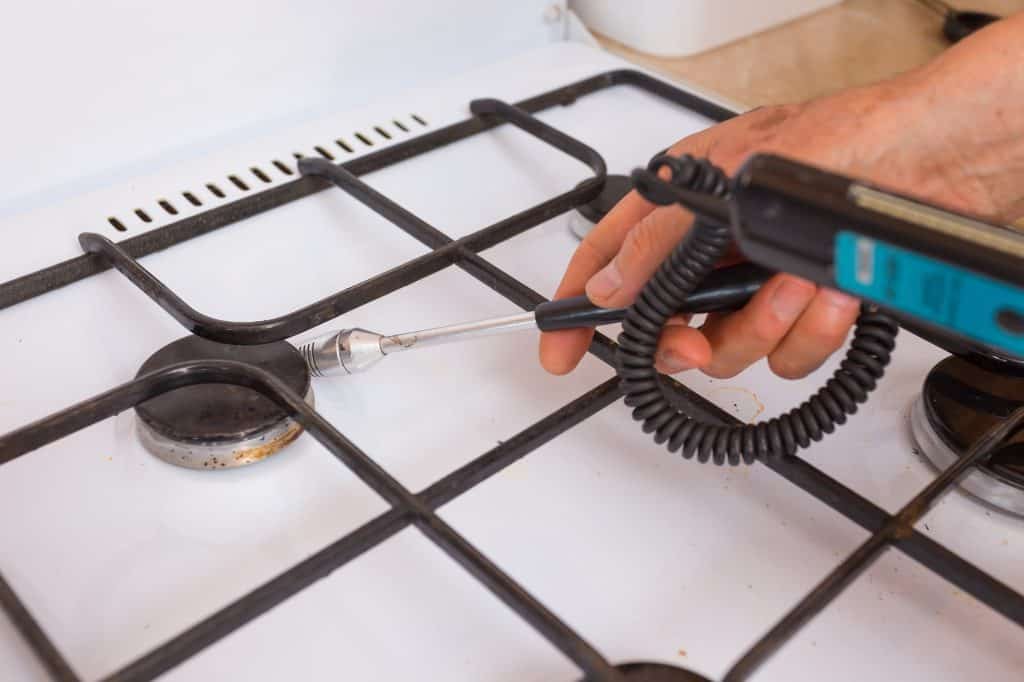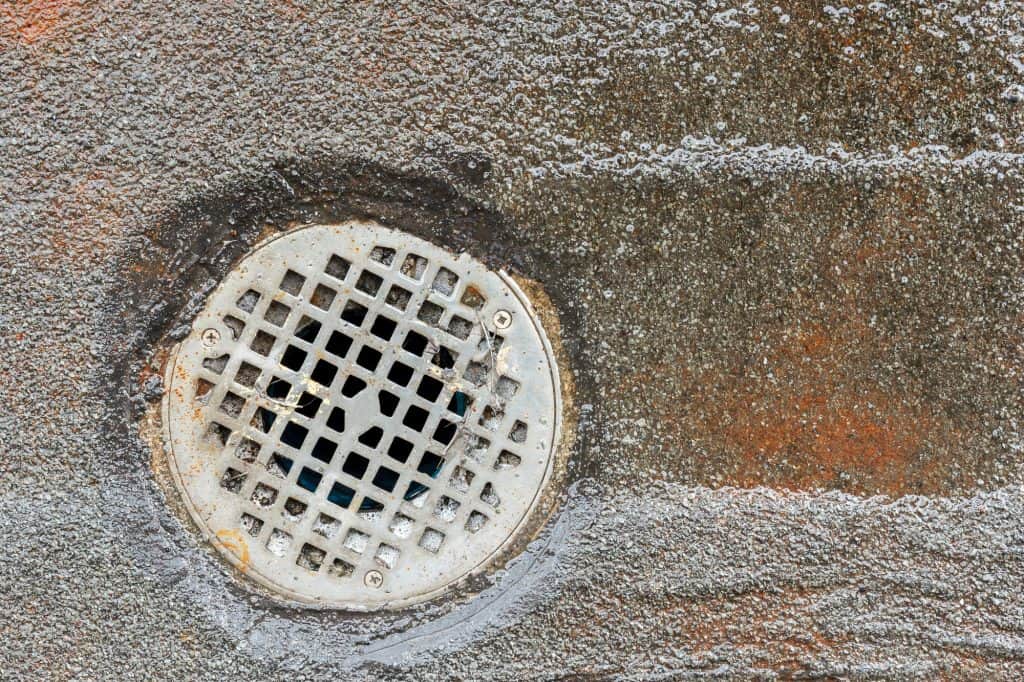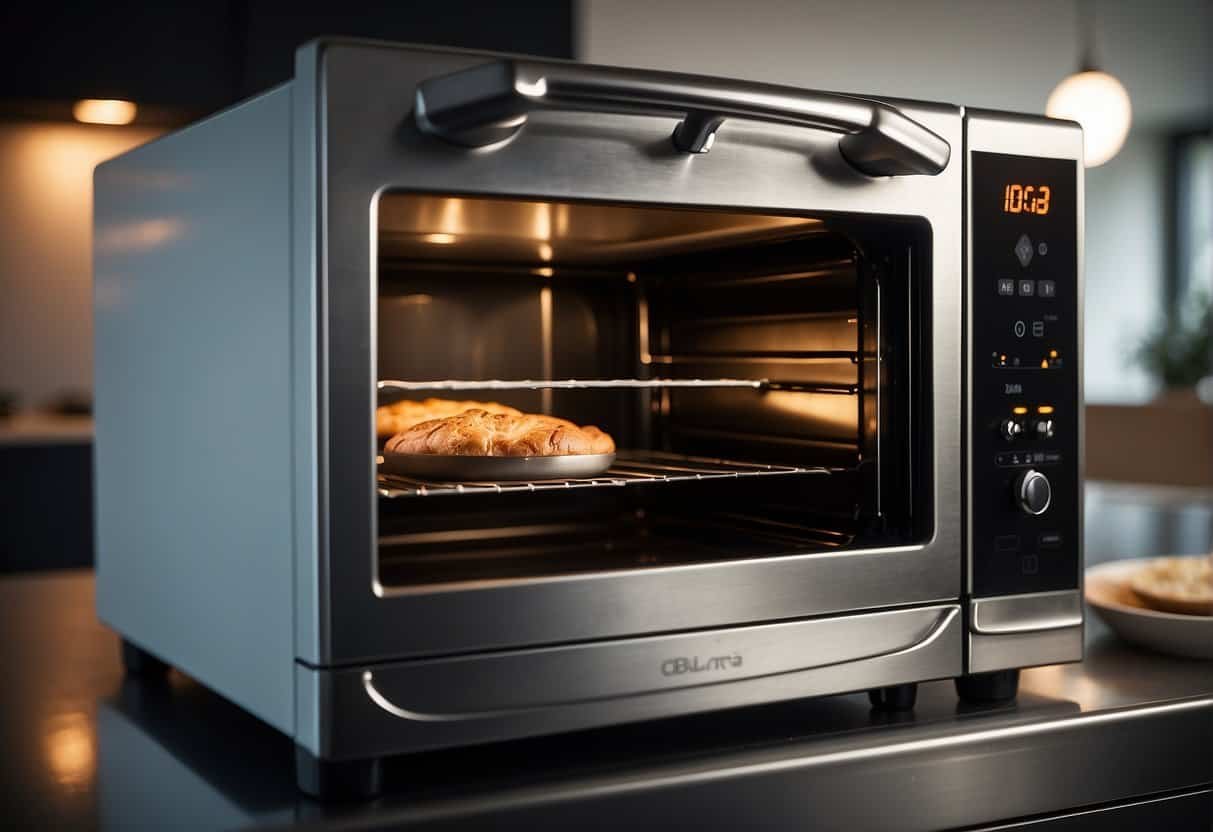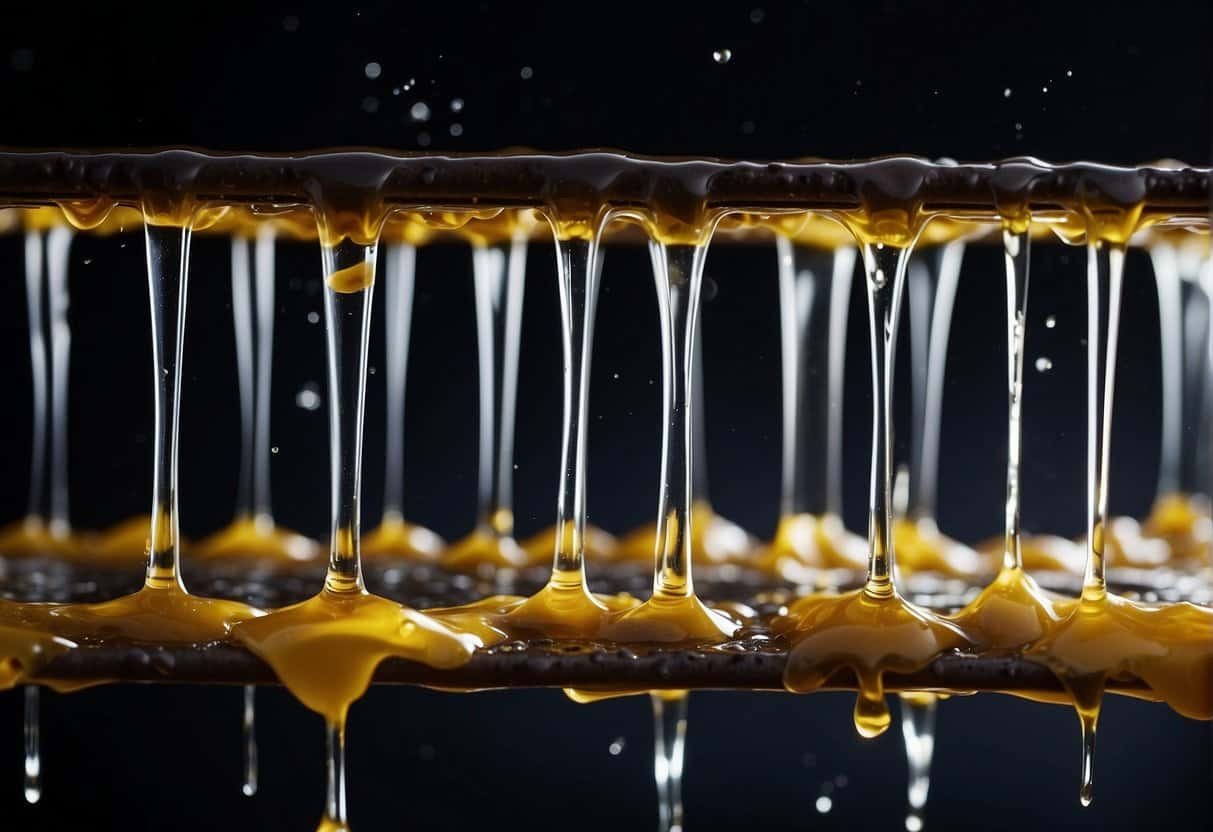Table of Contents
No one enjoys arriving home only to be hit by an unpleasant smell. Some smells remain long enough for homeowners to follow their noses, determine the source of the odor, and eradicate it. What are some of the most common causes of house smells, and what can you do to fix them?
House smells that come and go include rotten eggs, sewage, and “dead animal” smells. Others may include sour, fishy, or urine-like smells, while a musty or moldy odor is also common. Burnt-out electrical fixtures, mold, blocked drains, and gas leaks are common causes.
This article will discuss the most common house smells that come and go. I’ll also provide their causes and some helpful fixes. Let’s get started!
1. Rotten Egg / Sewage Smell That Comes and Goes
A periodically occurring rotten egg or sewage smell may be caused by the following:
- A gas leak
- The presence of sewer gas
- A problem with your water heater
Gas in your home can be extremely hazardous and harmful to your health, so it’s vital to fix the cause as soon as possible. (Source: FloHawks)
A Gas Leak
A gas leak is arguably the most serious cause of a rotten egg or sewage smell in your home. Gas companies use propane and natural gas, which are odorless but can emit a strong odor if there’s a gas leak. This makes it helpful in detecting a gas leak.

Gas leaks only occur in homes with appliances dependent on the substance for fuel. If you have water heaters or stoves running on gas, assume the smell is a gas leak and evacuate the house.
Call the gas or utility company to test your home for leaks.
Sewer Gas
If the smell randomly appearing in your home stinks of sewage, you’re likely smelling sewer gas, a mixture of toxic and nontoxic gasses. Sewer gas is created in your home’s sewer line and is a result of decaying household waste from the toilet.
Decomposing human and animal waste creates hydrogen sulfide gas, a pungent odor that smells like rotten eggs. It’s colorless, flammable, and potentially hazardous. Naturally, sewer systems are full of this gas.
Sewer gas’s full composition is:
- Mostly methane
- Hydrogen sulfide
- Ammonia
- Carbon dioxide
- Sulfur dioxide
- Nitrogen
- Hydrogen
Methane alone fills the space of oxygen and can be lethal if left unchecked. The full cocktail of sewer gasses can create respiratory issues and needs to be addressed swiftly. Fortunately, the causes of sewer gas often require small, easy fixes.
Dry Traps
Sinks, showers, floor drains, and toilets connect to the main sewer line, allowing water to travel through your pipes and out of your home. However, if water escapes, sewer gas can get in.
Each drain contains a U-shaped trap, which holds enough water to create a barrier between the gas and your home. However, if a drain remains unused, the water eventually evaporates, removing the barrier, and allowing the gas and its stench to enter your home.
Fortunately, there’s an easy solution for dry traps. Simply run water through the drain for a few minutes weekly to refill the u-trap and recreate the barrier to block the sewer gas.

Clogged Drains
The rotten smell of sewer gas could also indicate a clogged drain. Checking if you have a clogged drain is easy and involves observing how quickly the water in your sink or tub drains.
Listening to gurgling while the water drains or the toilet flushes can also help you determine whether or not you have a blocked drain. This indicates that air cannot escape the drain’s vent and is getting into your pipes and home, with all the odors it entails.
Call a plumber to unclog the drain pipe. Alternatively, try and remove the obstruction yourself using a plumbing snake or screwdriver.
Water Heater Problems
If you notice the rotten egg smell only when you run the hot water, the cause is likely a faulty water heater. When a water heater’s anode rod is broken or worn out, it can create a sulfurous odor in the hot water.
The anode rod is a steel and aluminum core that’s designed to draw corrosive elements away from the tank’s inside.
If you suspect your water heater is causing the smell, contact a plumber to install an aluminum or zinc replacement rod. (Source: Bob Vila)
2. Bad, Rotten, or “Dead Animal” Smell that Comes and Goes
Smells are often exactly what they seem to be. So, if you think you smell a dead animal, you’re probably correct. Check hidden corners and any place you might not immediately notice an animal’s corpse.
Animals, most often rodents like mice and rats, sneak into your home and die in places where they aren’t detected. (Source: Boulden Brothers)

The smell can also mean food has fallen into a difficult-to-access location and is rotting.
Removing the dead animal or rotten food should eradicate the smell, though more care is needed with dead animal disposal and a follow-up clean up.
Decaying animal corpses release their own smells and attract other pests, such as maggots and fleas. If you suspect you smell a dead animal, contact a professional to remove the corpse immediately.
3. Sour or Urine-Type Smells that Come and Go
A cat urine smell may have nothing to do with your feline friend. The odor sometimes indicates the presence of mold, particularly if it occurs after a rainy period. Black mold, which is extremely hazardous and needs to be mitigated as quickly as possible, smells of cat urine when wet. (Source: Bob Vila)
Water may also reactivate the smell of any previous cat urine. If your home’s prior resident owned incontinent cats, moisture that hits any wooden surface would reactivate the odor.
A urine smell may also mean your home was previously used to make methamphetamines, which can leave a potentially hazardous residue that can harm your breathing. (Source: Nevada Attorney-General’s Office)
This smell can also indicate:
- A pest problem
- A plumbing problem
- A mold problem
- Malfunctioning electrical wires
4. Fishy Smell that Comes and Goes in the House
As unlikely as it may seem, a fishy smell indicates an electrical component is overheating or burning out.
This is usually caused by the following:
- Loose or frayed wires or cords
- Overloaded circuits
- Faulty outlets
- Incorrectly sized breakers or fuses
- Overheated electrical shielding or insulation.

It’s important to address these causes, as they may result in house fires. Look for burnt or melted fixtures and ensure plastic and anything flammable is nowhere near a heat source or light fixture.
If the smell only occurs when you use a certain outlet or appliance, you may have found the cause of your problem. Stop using the device or outlet, and if necessary, have an electrician examine the fixture. (Source: Bob Vila)
5. Musty or Moldy Smell that Comes and Goes
Mold or mildew grows in humid or moisture-prone environments like:
- Basements
- Laundry rooms
- Kitchens
- Bathrooms
Mold releases volatile organic compounds into the air and undergoes a chemical alteration. Potentially toxic mold compounds vaporize at room temperature, creating the smell.
Mold and mildew can cause intense respiratory problems and exacerbate allergic reactions and should be remediated as soon as possible. If the affected area is relatively small, you can do this with a solution of bleach. Severe mold infestations require professional intervention.
Just because you don’t see mold doesn’t mean it’s not there. This may mean mold or mildew is growing inside your walls, and you’ll need a professional to remediate the problem.
You can prevent mold growth by ensuring none of your appliances are leaking. Check for leaky or cracked pipes, and consider installing de-humidifiers or ventilation fans. (Source: Make It Right)
Many household complications cause smells that come and go. Once you understand the causes, you can address the issues and eliminate the odors, whether it’s clogged drains or burnt-out fixtures.
Freshen Up Your Home with These Air Fresheners
Dealing with unpleasant house smells can be a real hassle, but once you’ve tackled the root causes, keeping your home smelling fresh is easy with the right air fresheners. Here are two of our top recommendations:
1. Air Wick Essential Mist Starter Kit

Air Wick’s Essential Mist Starter Kit transforms natural essential oils into a gentle, fragrant mist, creating a serene and inviting atmosphere in any room. It’s perfect for combating lingering odors and keeping your home smelling delightful.

Glade’s Automatic Spray Kit provides continuous fragrance with a burst of freshness every few minutes. It’s an excellent choice for keeping those pesky odors at bay and maintaining a pleasant aroma throughout your home.
Both of these air fresheners are great additions to your cleaning arsenal, ensuring your home smells as wonderful as it looks. Try them out and enjoy a fresher, more inviting living space!










